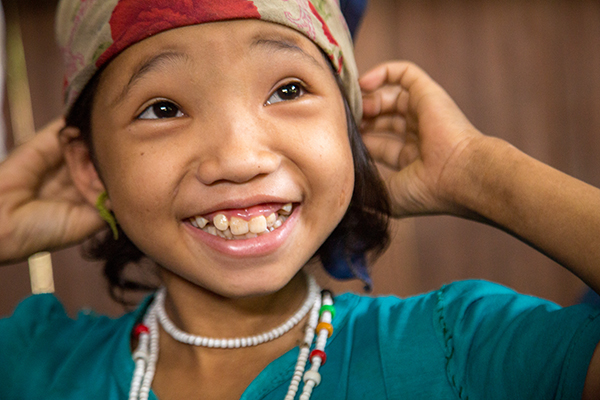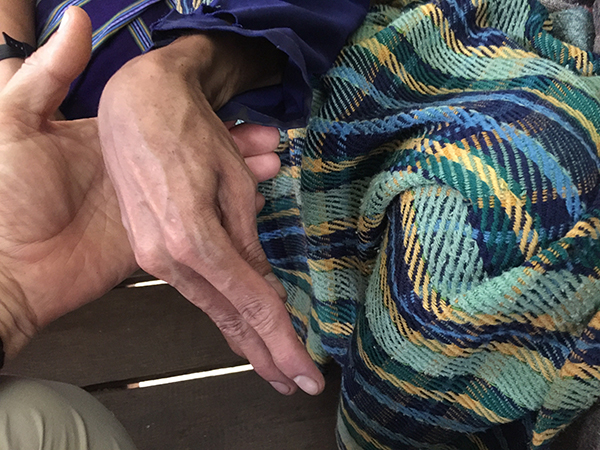Updates from the Jungle School of Medicine-Kawthoolei
4 December 2017
Karen State, Burma
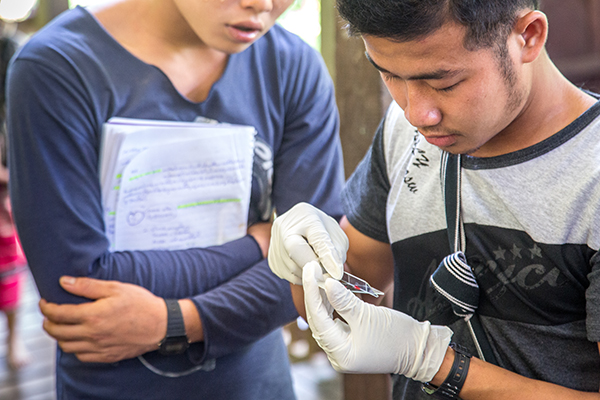
FBR’s Jungle School of Medicine-Kawthoolei (JSMK) operates a 14-month training course for health care workers in Karen State, Burma. The school and hospital/clinic started operations in 2011 and, over the past five years, has graduated more then 100 health care workers, known as medics, from throughout Karen State. Trained medics function within FBR teams providing relief health care, and many go on to work in Karen Department of Health and Welfare (KDHW) clinics. Students are selected for the course by leaders from each district. By the end of fifteen months of training, medics are capable of diagnosing and managing the most important illnesses they will encounter. Following graduation, a small number remain at the campus for additional training.
New Teachers and New Training
In October 2017, FBR’s Jungle School of Medicine-Kawthoolei enjoyed a visit by missionary surgeon Dr. Scott M. He taught at our annual staff retreat, and inaugurated abdominal surgical services at JSMK. For the first time at JSMK, we were able to provide hernia repairs, a breast biopsy, and ovarian resection to patients from surrounding villages. In addition, Dr. Scott taught about spinal anesthesia, postoperative care, management of lower abdominal pain and inguinal hernia repair. We were so grateful for his expertise and encouragement and look forward to future visits and further training.
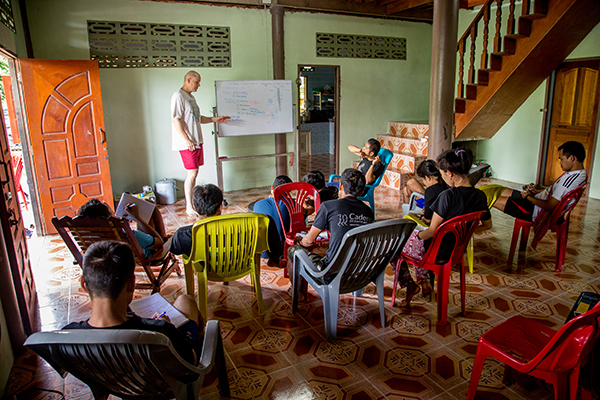
Epigastric Pain
This patient presented with 10 days of severe pain in the upper abdomen. He has had this experience four times over the last few years. Epigastric pain is a very common complaint among our patients. There are probably multiple reasons including robust use of chili, and betel nut ingestion. Treatment is often effective. Occasionally we see patients with strongyloidiasis or giardiasis, intestinal parasites that can also cause upper abdominal pain. This man responded to treatment with antacids, acid blocking medication, and antibiotics to counter a bacterial infection called helicobacter pylori. He has decided to stop smoking and chewing betel nut.
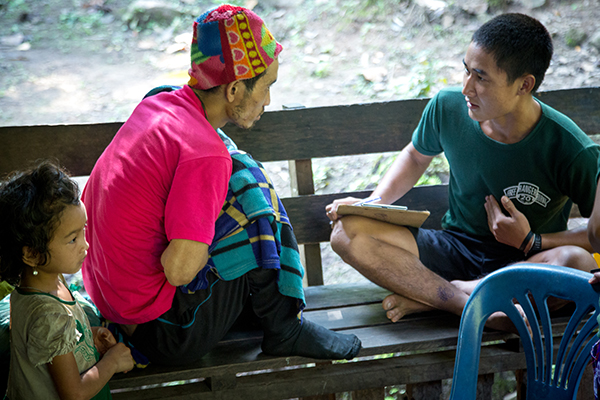
Nephrotic Syndrome
This boy’s severe swelling was correctly diagnosed by his local clinic, but after four months they were unable to improve the symptoms and referred him to FBR’s JSMK. Here, we treated his nephrotic syndrome, enjoying the transformation over two weeks from a sad fearful child to a playful boy with a ready smile. We sent him home with ongoing medications and a letter of encouragement for his local clinic. This condition is surprisingly common in Karen State.
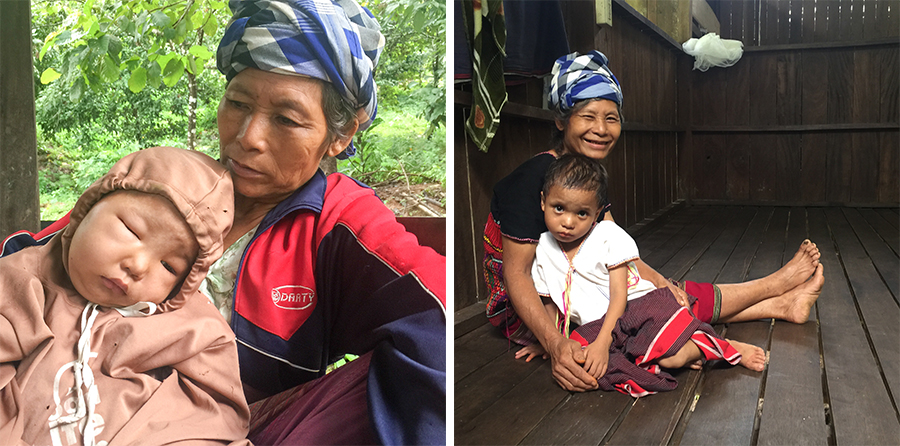
Stillbirth and Congestive Heart Failure
This 32 year-old woman suffered a stillbirth, followed by sudden onset of congestive heart failure. She arrived with severe shortness of breath and ascites (fluid in the abdomen). Treatment helped improve her symptoms and reduce the fluid. During her recovery she developed sudden muscular cramps caused by low calcium and magnesium. These responded promptly to intravenous calcium and magnesium therapy. She has made significant strides in improving her symptoms, and we hope that her heart will recover some strength over time.
Pyomyositis
Pyomyositis is an abscess caused by a bacterial infection deep inside the muscle. Drainage is necessary, followed by dressing changes as well as antibiotics.
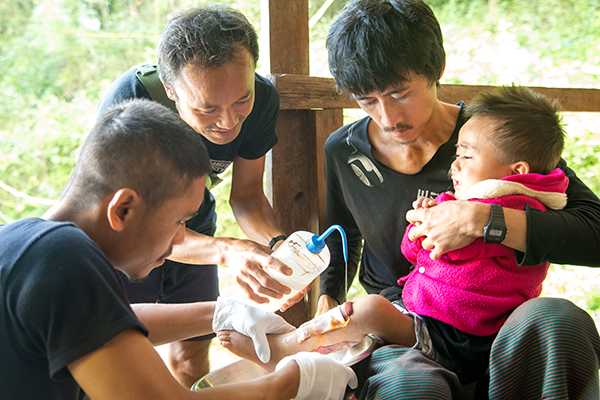
Scrub Typhus
This 10-year-old girl came to us with fever and what seemed like a simple viral sore throat. However, instead of improving she steadily worsened. Testing for malaria and her white blood count were normal. Eventually, we treated her for scrub typhus, with a rapid resolution of her symptoms. Given the limited tools for diagnosis at JSMK, we are often compelled make the best diagnosis using our clinical skills and knowledge of local illness patterns and then treat the most likely condition. It is wonderful to see patients respond and go home well.
